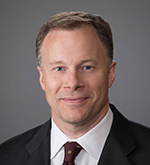Fundamentals of Motor Vehicle Fire Investigation C0915
Topics: Accident Reconstruction
The manner in which a motor vehicle fire is initiated and subsequently spreads is dependent on a number of complex, interdependent, phenomena including combustion kinetics, heat transfer and fluid dynamics. Because the damage caused by a fire is coupled to these phenomena, damage patterns can sometimes be used to understand certain characteristics about the fire. In many cases, the goal is to determine the cause and origin of the fire.
In this highly interactive, hands-on course, participants will acquire a working knowledge of fire science and be able to use this knowledge to assess possible ignition mechanisms, evaluate burn patterns, and analyze fire spread. This course will also explore the interpretation and limitations of the physical evidence from a fire scene. The approach to collecting and retaining important physical evidence, and laboratory techniques to examine this evidence are also covered. As an in-class project, participants will have the opportunity to inspect several burned vehicles, predict cause and origin and compare findings to the actual cause and origin of the fire, as shown in burn test videos.
Learning Objectives
By attending this course, you will be able to:
- Apply fundamental combustion concepts to evaluate possible ignition mechanisms, burn patterns, and fire spread
- Recognize the value and limitations of burn patterns to determine the area of origin of a fire
- Describe the typical burning characteristics of motor vehicle fires
- Identify and retain important physical evidence during a structure or vehicle fire inspection
- Utilize laboratory techniques to evaluate physical evidence recovered from a fire scene
Who Should Attend
This course is designed for engineers, scientists, investigators and consultants involved in the investigation of vehicle fires.
Prerequisites
An engineering degree in any discipline would be beneficial.
***Please be advised that this course involves one or more of the following: driving and/or riding in a vehicle; participating in a vehicle demonstration; and/or taking part in an offsite tour using outside transportation. You will be required to sign a waiver on-site and produce a valid driver’s license from your state/country of residence.***
Testimonials
"A state-of-the-art presentation of the technological realities of post-fire vehicle inspection. Emphasizes the limitations of, as well as the potential for obtaining reliable, relevant information from such investigations. Essential knowledge for the professional fire investigator."
Darby A. Gray
Principal Engineer
Darby A. Gray
You must complete all course contact hours and successfully pass the learning assessment to obtain CEUs.
Jeff Colwell
 Dr. Jeff Colwell is Principal Engineer at Colwell Consulting LLC where he specializes in the engineering analysis of thermal and combustion processes, particularly the cause, origin and propagation of fires and explosions. Prior to starting his own consulting company, Dr. Cowell was the Principal Engineer in Exponent's Thermal Science practice where he specialized in the engineering analysis of thermal and combustion processes, especially the cause, origin, and propagation of fires and explosions. Dr. Colwell has particular expertise investigating fires associated with automobiles, recreation vehicles, motorcycles, and heavy trucks, where typical fire scenarios include post-collision fires, structure fires involving vehicles, and fires that occur while the vehicle is being operated. He analyzes how these fire scenarios, along with vehicle design, operation, maintenance, repair, and aftermarket equipment, are related to mechanisms of fire causation, growth rate, and spread. He has specialized expertise in designing and conducting both component and full-scale tests to evaluate these complex relationships.
Dr. Jeff Colwell is Principal Engineer at Colwell Consulting LLC where he specializes in the engineering analysis of thermal and combustion processes, particularly the cause, origin and propagation of fires and explosions. Prior to starting his own consulting company, Dr. Cowell was the Principal Engineer in Exponent's Thermal Science practice where he specialized in the engineering analysis of thermal and combustion processes, especially the cause, origin, and propagation of fires and explosions. Dr. Colwell has particular expertise investigating fires associated with automobiles, recreation vehicles, motorcycles, and heavy trucks, where typical fire scenarios include post-collision fires, structure fires involving vehicles, and fires that occur while the vehicle is being operated. He analyzes how these fire scenarios, along with vehicle design, operation, maintenance, repair, and aftermarket equipment, are related to mechanisms of fire causation, growth rate, and spread. He has specialized expertise in designing and conducting both component and full-scale tests to evaluate these complex relationships.
Prior to joining Exponent, Dr. Colwell held research positions at AlliedSignal Aerospace, the Combustion Laboratory at Arizona State University, the High Temperature Gas Dynamics Laboratory at Stanford University, and the Thermal Sciences and Propulsion Center at Purdue University. He has a B.S. in Mechanical Engineering from the University of Wyoming, a M.S. in Mechanical Engineering from Purdue University, a M.S. in Engineering from Stanford University and a Ph.D. in Mechanical Engineering from Arizona State University.
